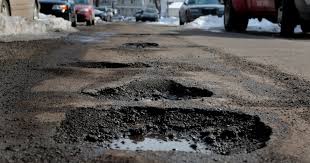
For the eighteenth year, last week I joined thousands of people committed to digital accessibility at the annual CSUN Assistive Technology Conference. And as has been the case for the past many years, there was a growing interest in the digital accessibility legal landscape.
This year I repeated the CSUN Digital accessibility Legal Update three times. And I had the wonderful opportunity to present with Microsoft’s lawyer Sue Boyd on our shared views about how organizations can stay ahead of the legal curve. Stay tuned for another post about our suggestions for baking accessibility into every aspect of an organization.
This post offers more detailed information about some of the topics covered in the CSUN 2018 legal updates. Please also check earlier posts on the Legal Update page of this website that include some of the information included in this year’s update.
You can also check out the slides for both of Lainey Feingold’s 2018 presentations
- 2018 CSUN Digital Accessibility Legal Update presentation
- Staying Ahead of the Legal Curve presentation (with Microsoft’s Sue Boyd)
And please remember, Lainey Feingold’s legal updates — whether written or at conferences or webinars — are not legal advice. That means that if you need a lawyer, you should not rely on the update information, you should find a responsible lawyer!
Here’s what you’ll find in this post:
- Why is there a picture of a pothole illustrating this post?
- Bar Exam Prep, City Hearings, Food Delivery
- It’s Not Over Yet: Web Accessibility Cases on Appeal
- Kiosks have to be accessible too
- Changes in Department of Education complaint processing affects web claims
- Finally – a New DOJ Web Accessibility Settlement
- A Threat to all Legal Strategies
Why is there a picture of a pothole illustrating this post?
As the number of lawsuits about inaccessible websites grows, more judges have the opportunity to consider how law impacts accessibility. Almost all of the recent court opinions come about when a company asks a court to throw a web access case out of court very early in the process.
The company’s request is called a Motion to Dismiss. Of the thirteen motions to dismiss filed in 2017, eleven judges decided the cases should stay in court. This does not mean the case is over, or that the plaintiff won. It just means that the person filing the case can continue in court (although most cases will settle).
In a case filed against Blick art supply stores the company decided to file a motion to dismiss and get the lawsuit thrown out of court. Remember – organizations do not have to fight web access lawsuits or file motions to dismiss. All parties have an opportunity to try to resolve cases as early in the process as they can. As I say in every presentation and have written about before, every organization has the option to spend money on accessibility not on lawyers.
One of the arguments the company made was that people can only bring web access cases if the website is connected to a physical store. That connection is called a “nexus” and the Judge in the Blick case wasn’t buying it.
A rigid adherence to a physical nexus requirement leaves potholes of discrimination in what would otherwise be a smooth road to integrationJudge Weinstein in Blick case
That the judge in the Blick case is 96 years old makes his understanding all the more poignant. It was fun, humbling, and energizing to be at #CSUNATC18 with so many people and organizations dedicated to fixing those potholes.
- Read the judge’s opinion in the Blick case
- Read my August 2017 article about Blick and other cases with more quotes from the Blick court order.
Bar Exam Prep, City Hearings, Food Delivery
 This year’s CSUN Legal Update touched on as many new cases about digital accessibility as 40 minutes would allow. Here are links to learn more about a few that were mentioned. They reinforce my view that while some companies do win accessibility skirmishes in litigated cases, fighting them is most often like throwing money in a trashcan.
This year’s CSUN Legal Update touched on as many new cases about digital accessibility as 40 minutes would allow. Here are links to learn more about a few that were mentioned. They reinforce my view that while some companies do win accessibility skirmishes in litigated cases, fighting them is most often like throwing money in a trashcan.
- Barbri Test Prep Settlement: In January, 2018 the parties announced a settlement of a lawsuit that had been filed against the largest company in the U.S. that offers preparation courses and materials for the Bar Exam – the required test for becoming a U.S. lawyer. The case, about accessibility barriers in the test prep materials, was filed in April 2016 and included in my Spring 2016 Legal Update.
- Read the press release announcing the Barbri settlement.
- Read the Barbri digital accessibility consent decree (settlement agreement) resolving the case, brought by blind test takers in federal court in Texas. The settlement includes provisions for web, mobile, and print information access.
- Miami-Dade County Public Schools board meetings online: In May 2017 the parties announced the settlement of a court case brought because online board meetings were not captioned, thus blocking participation by deaf and hard-of-hearing residents.
- Blue Apron court refuses to throw out web case: In a web access case brought against Blue Apron food kit service, the company argued that the case should not be in court because the US Department of Justice (DOJ) has not yet issued specific regulations requiring website accessibility. The court agreed with a message that has been part of the legal update for years: ADA web regs are dead; the ADA is alive and well
The court will not delay in adjudicating [plaintiff’s] claim on the off-chance the DOJ promptly issues regulations it has contemplated issuing for seven years but has yet to make significant progress on. Judge J. LaPlante in Blue Apron case
Read the 35 page Judge’s Order in the Blue Apron case
Back to topIt’s Not Over Yet: Web Accessibility Cases on Appeal
Most of the CSUN audience had heard about the trial court’s decision in the Winn-Dixie web accessibility case. It was the first case under the ADA about websites to go to trial, and the judge issued a strong order requiring the grocer’s website to be accessible. As I reported at CSUN, the case is now on appeal, with no date set for an oral argument or an appeals court opinion.
I’ve written about the Winn-Dixie case here, and will report any news on the appeal as soon as I have it.
- Big Win For Blind Shopper In First U.S. Ada Web Accessibility Trial
- Web Accessibility For Grocers: Winn-Dixie Wasn’t Paying Attention
Another federal case on appeal is one brought against Domino’s Pizza, again for an inaccessible website. The Domino’s case was one of the few court orders throwing a web case out of court because of the absence of federal regulations. The plaintiff is appealing and the argument should be heard by the appeals court this summer.
As a reminder that the Domino’s judge’s decision does not set precedent, a judge in the same federal district as the Domino’s judge ruled just the opposite in a case brought against Hobby Lobby. Read more about the Hobby Lobby web case.
Back to topKiosks have to be accessible too
Digital accessibility is a civil right because without it, people with disabilities are excluded from participation. This is true for websites, mobile apps, kiosks, and all types of technologies. The law is starting to pay attention to kiosk accessibility, as I mentioned during the update and wrote about in a January 2018 post titled Kiosk Accessibility: The Law is Paying Attention.
Back to topChanges in Department of Education complaint processing affects web claims
As followers of the digital accessibility legal landscape know, the past few years have brought more than two thousand administrative complaints to the Office of Civil Rights of the U.S. Department of Education (DOE) challenging inaccessible websites across the country. Many of these complaints have been filed by a single individual, and the Department has opened investigations on significant numbers of them.
This is about to change. Earlier this month the DOE issued new rules allowing offices to dismiss certain claims when there is a “pattern of complaints” or other reasons that put a burden on the department. Web accessibility investigations of filed complaints have recently been closed.
- Read an article about the new DOE claims processing guidelines
- Read the new (effective March 8, 2018) guidelines for complaints to the DOE
Finally – a New DOJ Web Accessibility Settlement
In January 2018 the Department of Justice announced its first web accessibility settlement under the new administration. The case was settled with the City of Denver, and contains language similar to web accessibility settlements reached during the previous administration when the DOJ was a champion of accessibility.
- Read the DOJ web accessibility settlement with the City of Denver (starts at paragraph 34)
- Read the DOJ Press Release about the Denver settlement
- Visit the DOJ’s Access Technology page with links to DOJ digital accessibility activity between 2004 and 2017
A Threat to all Legal Strategies
Those who know me know I believe there are many tools to enforce civil rights of people with disabilities to participate in the digital world. Though my tool of choice whenever possible is Structured Negotiation, I know that both lawsuits and administrative complaints have been effective tools in filling the potholes of discrimination. And without a strong ADA, many Structured Negotiation win-win results would not have been possible.
That is why I am opposed to the legislation known as HR 620, and why I mentioned in each repeat of the 2018 CSUN Legal Update that no matter what any of us may think about the validity of how particular lawyers are using particular strategies, we must speak in one voice against efforts to limit the ability to enforce the ADA.
HR 620 passed the Republican House of Representative and is headed to the Senate. I encourage you to Learn more about the danger of this legislation, familiarize yourself with available resources about this threat to the ADA, and let your senators know your views on the civil rights of people with disabilities.
Back to topWant more law? I send occasional emails about digital accessibility legal developments and tweet about new developments as I hear about them.
Follow Lainey Feingold on Twitter Sign up for Lainey’s email list